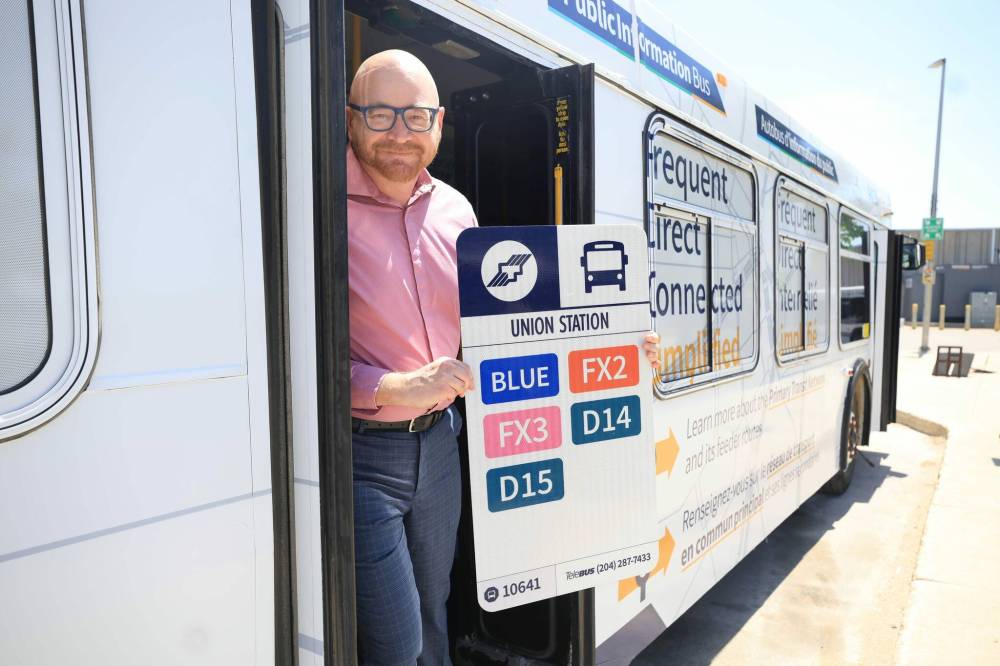Politics
Transit Users Demand Urgent Changes After Overhaul in Winnipeg

Transit users in Winnipeg are expressing frustration over the recent overhaul of the city’s transit system, which took effect on June 29, 2023. Many riders have reported significant issues, including the elimination of traditional routes that are crucial for their daily commutes. City officials are now under pressure to address these concerns, but the timeline for any adjustments may not meet the urgent needs of the community.
Concerns Raised Over Service Changes
During a media briefing, Bjorn Radstrom, the manager of service development for Winnipeg Transit, acknowledged the influx of feedback from riders. “We probably receive something like one commendation for every 100 complaints,” Radstrom stated. He explained that the volume of complaints has increased dramatically since the changes were implemented, indicating widespread dissatisfaction with the new system.
Radstrom emphasized the importance of allowing time for users to adapt to the changes before making any immediate adjustments. “The value in today’s meeting is with helping the councillors to understand that we are listening and we’re reading all this feedback,” he said. While he noted the need for a measured response, he also pointed out that the earliest opportunities for adjustments might not come until next summer, which many users find unacceptable.
Impact on Commuters and Essential Services
The delay in addressing these issues raises significant concerns, particularly for those who rely on public transportation to reach their jobs and educational institutions. For many users, the absence of reliable transit options means that they may not have alternative means of transportation. Radstrom’s comments appeared to downplay the urgency of the situation, as he indicated that any changes would not be implemented for nearly a year.
Many workers, especially those in lower-income positions or with varying shift schedules, are particularly affected. One major complaint centers on the fact that several routes cease operation by 11 o’clock at night, leaving those who work late shifts with no viable transportation options. This lack of service does not accommodate the needs of the workforce, and employers are unlikely to accept a significant delay in resolving these issues.
As Radstrom suggested, the goal of the transit overhaul is to attract more riders to a financially challenged system. Regular transit users contribute approximately $1,600 annually for their commutes, or $1,400 if they opt for monthly passes. Retaining these customers should be a priority, particularly as they represent a stable revenue source for the transit system.
In light of these challenges, many users are questioning the effectiveness of the current approach. Addressing complaints without timely solutions may lead to further dissatisfaction and disengagement from the transit service. As the city council prepares to review the situation, the urgency for practical solutions cannot be overstated.
The demand for improved transit services is clear. Commuters need a system that meets their immediate needs, rather than one that promises potential changes far in the future. As the city navigates these challenges, the focus must remain on ensuring that public transportation is accessible, reliable, and responsive to the needs of all users.
-

 Politics4 weeks ago
Politics4 weeks agoSecwepemc First Nation Seeks Aboriginal Title Over Kamloops Area
-

 World5 months ago
World5 months agoScientists Unearth Ancient Antarctic Ice to Unlock Climate Secrets
-

 Entertainment5 months ago
Entertainment5 months agoTrump and McCormick to Announce $70 Billion Energy Investments
-

 Science5 months ago
Science5 months agoFour Astronauts Return to Earth After International Space Station Mission
-

 Lifestyle5 months ago
Lifestyle5 months agoTransLink Launches Food Truck Program to Boost Revenue in Vancouver
-

 Technology3 months ago
Technology3 months agoApple Notes Enhances Functionality with Markdown Support in macOS 26
-

 Lifestyle3 months ago
Lifestyle3 months agoManitoba’s Burger Champion Shines Again Amid Dining Innovations
-

 Top Stories2 months ago
Top Stories2 months agoUrgent Update: Fatal Crash on Highway 99 Claims Life of Pitt Meadows Man
-

 Politics4 months ago
Politics4 months agoUkrainian Tennis Star Elina Svitolina Faces Death Threats Online
-

 Sports5 months ago
Sports5 months agoSearch Underway for Missing Hunter Amid Hokkaido Bear Emergency
-

 Politics5 months ago
Politics5 months agoCarney Engages First Nations Leaders at Development Law Summit
-

 Technology5 months ago
Technology5 months agoFrosthaven Launches Early Access on July 31, 2025





















